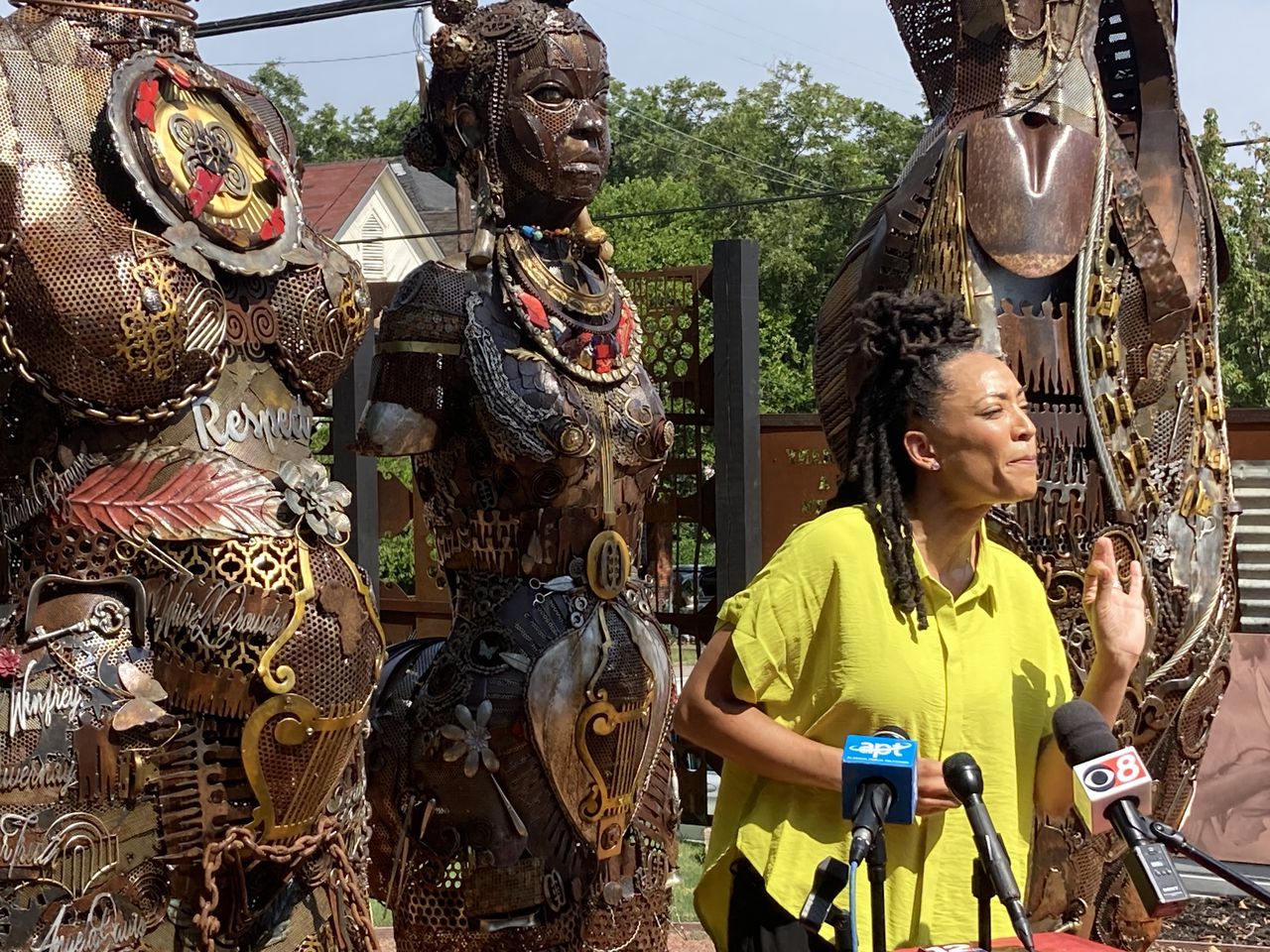ACLU sues Alabama over âde facto banâ on birth centers staffed by midwives
Alabama requires a hospital license to run a birth center where women with uncomplicated pregnancies can deliver under the care of midwives, but Alabama hasn’t given out any licenses to such centers. That’s a “de facto ban,” according to a lawsuit filed Tuesday by the ACLU of Alabama.
“This is unlawful and it’s unconstitutional,” said ACLU staff attorney Whitney White. “The care these centers provide does not meet the legal definition of a hospital under Alabama law. The department cannot impose a de facto ban on birth centers by making it impossible for them to obtain the license that the department says they need to operate.”
In a press conference held in front of the Mothers of Gynecology monument in Montgomery, three obstetrical care providers described the obstacles that have closed or blocked three planned birth centers. Dr. Heather Skanes of Birmingham, Dr. Yashica Robinson of Huntsville and Stephanie Mitchell of Gainesville, Ala. have all opened or tried to open facilities where women with uncomplicated pregnancies can deliver under the care of midwives.
The March of Dimes has labeled more than a third of Alabama counties as maternity care deserts, which means they lack obstetricians or hospitals with labor and delivery units.
But the state has made it impossible to open birth centers, even as it battles high rates of infant and maternal mortality and decreasing access to prenatal and delivery care, Mitchell said. Some of the women she sees in rural Sumter County travel 75 or 100 miles for care.
“People shouldn’t be forced to go without pregnancy care,” Mitchell said. “They shouldn’t be forced to go without adequate prenatal care or postpartum care or have to drive long distances to get the care they need. It should be available in their communities. Expanding access to midwifery and birth centers in places like Sumter County is a life-or-death situation for many families.”
All three birth center founders said they have raised money or taken out loans to construct facilities for labor and delivery. Now they are stuck paying the bills for centers that patients want but cannot use, Robinson said.
“I have been left in limbo for more than a year as to whether I will ever be able to open and operate my business, despite having made considerable personal and financial investments into Alabama Birth Center and despite receiving hundreds of inquiries from prospective patients interested in receiving care at the center,” Robinson said. “This has been devastating, despite my deep commitment to this project.”
Skanes, a board-certified gynecologist and obstetrician, said she served about two dozen women at Oasis Family Birthing Center in Birmingham in 2022 who all delivered healthy babies. In early 2023, Alabama officials told her to stop accepting patients while they developed regulations.
“I opened my center because there is a maternal and infant health crisis in Alabama, which is disproportionately affecting Black women and infants,” Skanes said. “Our hospital labor and delivery services are overrun, and many people are not getting access to adequate prenatal care.”
A spokesperson from the Alabama Department of Public Health said the agency does not comment on active lawsuits.
The lawsuit said ADPH requires hospital licenses for freestanding birth centers but has not created a path so facilities can obtain those licenses. The lawsuit alleges that ADPH is infringing on the providers’ right to operate lawful businesses and violating rights of due process and procreation. No birth centers have been licensed to operate in the state, said White.
Birth centers do operate in many other states. Alabama has been slow to accept out-of-hospital births after outlawing midwife-led deliveries several decades ago, Mitchell said. The state began licensing certified professional midwives for home births just five years ago after a long legal fight.
Advocates for birth centers say they can provide a middle ground between hospital and home birth for women who want to deliver with fewer medical interventions. Certified nurse midwives receive advanced training in prenatal and delivery care in nursing programs and usually provide care in hospitals. Certified professional midwives who perform home births do not receive medical or nursing degrees but must attend school or complete internships as part of training programs.
“The infant and maternal mortality rates are even higher in Black and rural communities,” said JaTaune Bosby-Gilchrist, executive director of the ACLU of Alabama. “And many of these deaths are preventable. Alabama’s death rate is so high because state leaders have repeatedly proved that reproductive healthcare is not a priority in Alabama.”
